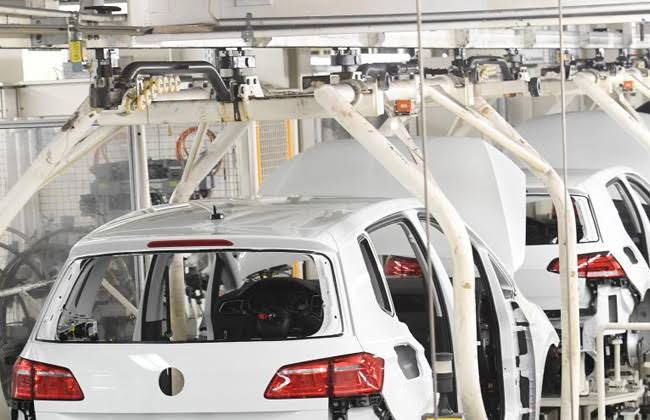As the world pivots toward greener transportation, Egypt has been eyeing becoming a key player in the global electric vehicle (EV) market.
The government’s ambitious plan, outlined in the Egypt Vision 2030, aims to produce no less than 500,000 electric cars annually by the end of the decade.
Working as hard as ever to achieve its EV ambitions, Egypt has actively courted global automotive manufacturers, offering incentives such as tax cuts and subsidised land to entice lure them to set up production facilities in the country.
Over the recent years, several international companies have responded positively, announcing plans to establish joint ventures or build factories in Egypt.
In May, the Egyptian investment company GV Investments signed a partnership agreement with China’s car manufacturing giant FAW Group to produce affordable EVs for Egypt.
Under the deal, a subsidiary of Egypt’s GV Investments is slated to begin local production of FAW’s cheapest model during the first quarter of 2025.
According to Automobile expert Gamal Askar, Egypt has the potential to play a significant role in the global EV supply chain. However, the road to achieving such vision is riddled with both promising opportunities and formidable challenges.
“First, the country enjoys a strategic geographic position at the crossroads of Europe, Africa, and Asia, making it a hub for trade and export. This allows Egypt access to markets in Europe, where regulations are pushing for the rapid adoption of EVs, and Africa, where the demand for affordable transportation solutions is growing,” Askar said.
“The Egyptian government has also been proactive in encouraging foreign investment in the EV sector. New legislation offers tax breaks and incentives for companies manufacturing or assembling electric cars in Egypt, while infrastructure projects are underway to build charging stations across major cities,” he added.
Egypt currently has five private companies that provide charging stations for electric vehicles. Additionally, the government is reviewing applications from three more companies seeking to offer charging services.
However, Askar believes that the path to establishing a vibrant electric car industry in Egypt is fraught with significant challenges, foremost among them is the lack of an established EV infrastructure.
“While plans to build a network of charging stations are underway, the current infrastructure is insufficient to support widespread EV adoption. This has led to concerns about how quickly the country can develop the necessary infrastructure to make electric cars a viable option for everyday consumers,” he said.
“Another major hurdle is the cost,” he added.
While electric cars are becoming more affordable globally, they remain more expensive than traditional vehicles. In a country where many rely on cheaper, second-hand vehicles, persuading the average Egyptian consumer to switch to electric cars will require not only attractive prices, but also robust financing options and incentives, Askar elaborated.
Additionally, Askar pointed out, the country lacks local production of key components such as batteries, which are crucial to the cost of electric vehicles. Currently, he said, these components need to be imported, which increases costs and adds complexity to the production process.
“For Egypt to compete in the global market, significant investment in local battery manufacturing and the sourcing of raw materials will be necessary,” Askar stressed.
Chairman of Egypt’s Engineering Export CouncilSharif AlSayyad, agrees with Askar.
He believes that Egyptian government should initially investin the production of key components such as motors and batteries, and eventually in full-scale vehicle production.
“Such steps could eventually transform Egypt into a competitive player in the global EVmarket,” AlSayyed said,






Discussion about this post